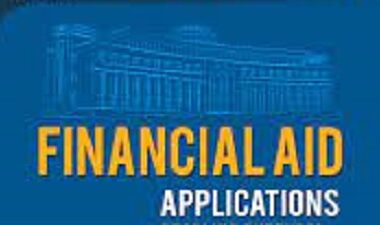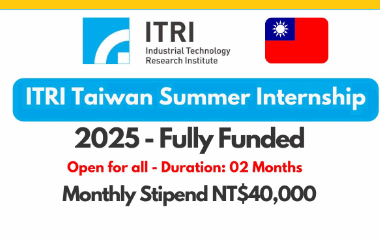Graduate school can elevate your career and income potential—but it also comes at a cost. From business and law to medicine and engineering, advanced degrees can easily run into five or six figures.
If you’re wondering how to fund your graduate education, this guide covers everything you need to know about graduate student loans—including federal and private options, interest rates, repayment strategies, and how to choose the best lender in 2025.
Why Graduate Student Loans Are Different
Graduate student loans differ from undergraduate loans in several ways:
- Higher borrowing limits
- Different interest rates
- Fewer subsidized options
- Specialized programs for professional degrees (e.g., Grad PLUS loans)
Understanding the types of loans available can help you borrow smartly and repay efficiently.
Federal Graduate Student Loans
Federal loans are typically the first option for most graduate students due to their flexible repayment terms, fixed interest rates, and forgiveness options.
Direct Unsubsidized Loans
- Eligibility: All graduate students (no financial need required)
- Loan Limit: Up to $20,500 per year
- Interest Rate (2025): ~7.05% fixed
- Origination Fee: ~1.057%
Pros:
- No credit check
- Access to income-driven repayment plans
- Eligible for Public Service Loan Forgiveness (PSLF)
Cons:
- Interest accrues during school
- Annual and aggregate borrowing limits
Direct PLUS Loans for Graduate Students (Grad PLUS)
- Eligibility: Must pass a credit check
- Loan Limit: Up to the full cost of attendance minus other aid
- Interest Rate (2025): ~8.05% fixed
- Origination Fee: ~4.228%
Pros:
- Covers full financial need
- No income restrictions
- Can be consolidated later
Cons:
- Higher interest and fees
- Requires good credit or an endorser
Top Private Graduate Student Loan Lenders in 2025
When federal aid isn’t enough, private lenders can help bridge the gap. These loans are based on your credit score and income (or a cosigner’s), and terms vary by lender.
Here are some of the best private lenders for graduate students in 2025:
1. SoFi Graduate Student Loans
- Fixed APR: Starting at 5.24%
- Variable APR: Starting at 4.49%
- Perks: Career coaching, unemployment protection, no fees
2. Earnest
- Fixed APR: From 5.99%
- Repayment Flexibility: Skip a payment once/year
- Cosigner Release: After 36 on-time payments
3. College Ave
- Fixed APR: 4.11% – 14.96%
- Loan Amount: Up to 100% of certified costs
- Repayment Terms: 5, 8, 10, or 15 years
4. Discover Graduate Loans
- APR: Starting at 4.99%
- Rewards: 1% cash reward for good grades
- Fees: No origination, application, or late fees
5. Sallie Mae
- APR: Fixed from 4.25%
- Loan Limits: 100% of school-certified expenses
- Extras: Free access to study resources and credit monitoring
Federal vs. Private Graduate Loans Comparison
| Feature | Federal Loans | Private Loans |
| Interest Type | Fixed | Fixed or Variable |
| Credit Check | Only for Grad PLUS | Required |
| Income-Driven Repayment | Yes | No |
| Loan Forgiveness | Yes | No |
| Origination Fees | Yes | Usually No |
| Grace Period | 6 months | Varies |
| Cosigner Needed | No | Often |
Cost of Borrowing: APR & Fees
Graduate loans usually come with higher interest rates than undergraduate loans due to increased risk. That said, your credit score, income level, and choice of repayment plan can greatly affect the total loan cost.
Tips to Lower Costs:
- Compare fixed vs. variable rates
- Make in-school payments
- Apply with a creditworthy cosigner
- Refinance after graduation
Refinancing Graduate Loans After Graduation
Once you finish your degree and start working, refinancing can save you thousands in interest.
Benefits:
- Lower your APR
- Consolidate multiple loans
- Remove cosigner
- Adjust repayment term
Top Refinance Lenders:
- SoFi
- Earnest
- Laurel Road
- ELFI
- PenFed
Note: Refinancing federal loans will forfeit access to PSLF and income-driven repayment options.
Graduate Student Loan Repayment Options
1. Standard Repayment
- Fixed payments over 10 years
2. Graduated Repayment
- Lower initial payments that increase over time
3. Income-Driven Repayment Plans (Federal Only)
- PAYE: 10% of discretionary income, forgiveness after 20 years
- REPAYE: 10% of income, forgiveness after 20–25 years
- IBR: 10–15%, forgiveness after 20–25 years
- ICR: 20%, forgiveness after 25 years
4. Public Service Loan Forgiveness (PSLF)
- Forgives balance after 120 qualifying payments while working in public service
Graduate School ROI: Is It Worth It?
While the debt can be substantial, graduate degrees often lead to higher salaries and career advancement.
| Degree | Median Annual Salary |
| MBA | $115,000 |
| M.S. Computer Science | $125,000 |
| Law (J.D.) | $148,000 |
| Medical (M.D.) | $208,000+ |
Tip: Calculate your debt-to-income ratio (DTI) before committing.
How to Apply for Graduate Student Loans
Step 1: Submit the FAFSA
This is essential for federal loans and some private scholarships.
Step 2: Evaluate Your Federal Loan Eligibility
Start with Direct Unsubsidized, then consider Grad PLUS.
Step 3: Compare Private Lenders
Shop around for the lowest APRs, cosigner terms, and repayment options.
Step 4: Use a Loan Calculator
Estimate monthly payments and total loan cost.
Step 5: Apply & Sign Loan Agreements
Submit documentation, school info, and cosigner details if applicable.
Security, Privacy & Loan Protections
Graduate loans often include:
- Forbearance & deferment options
- Cosigner release policies
- Loan discharge due to disability or death
- Bank-level data security protocols
These ensure that your financial data is safe and that you have support during hardships.
Frequently Asked Questions (FAQ)
Q1: Can I get a graduate student loan without a cosigner?
Yes, federal loans (Direct Unsubsidized & Grad PLUS) don’t require a cosigner. Some private lenders also offer non-cosigned loans.
Q2: What credit score do I need for a private graduate loan?
Typically, 680+ is required, but a strong cosigner can help if your score is lower.
Q3: Can graduate student loans be forgiven?
Only federal loans may qualify for forgiveness via PSLF or income-driven repayment programs.
Q4: Should I choose a fixed or variable interest rate?
Fixed rates offer stability. Variable rates may start lower but can increase. Fixed is safer for long-term borrowers.
Fund Your Future Wisely
Graduate student loans are a valuable tool to unlock advanced career opportunities. By understanding your options—federal vs. private, interest rates, repayment plans—you can borrow responsibly and avoid unnecessary debt.
Start by exhausting federal aid, compare lenders, and make smart repayment choices. Your education is an investment—fund it wisely.










